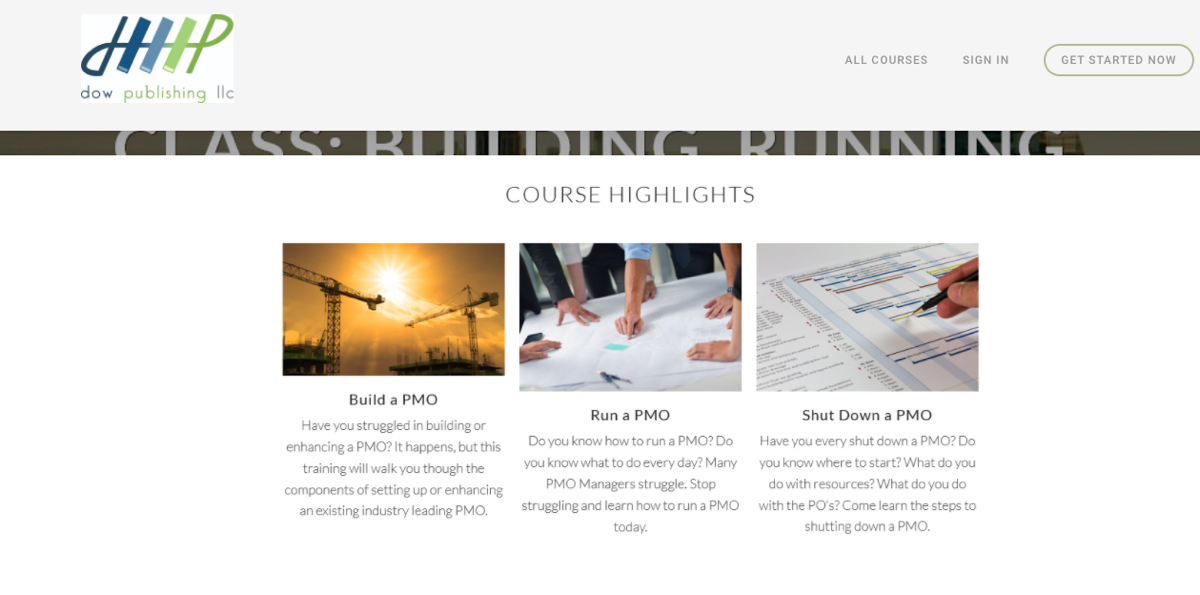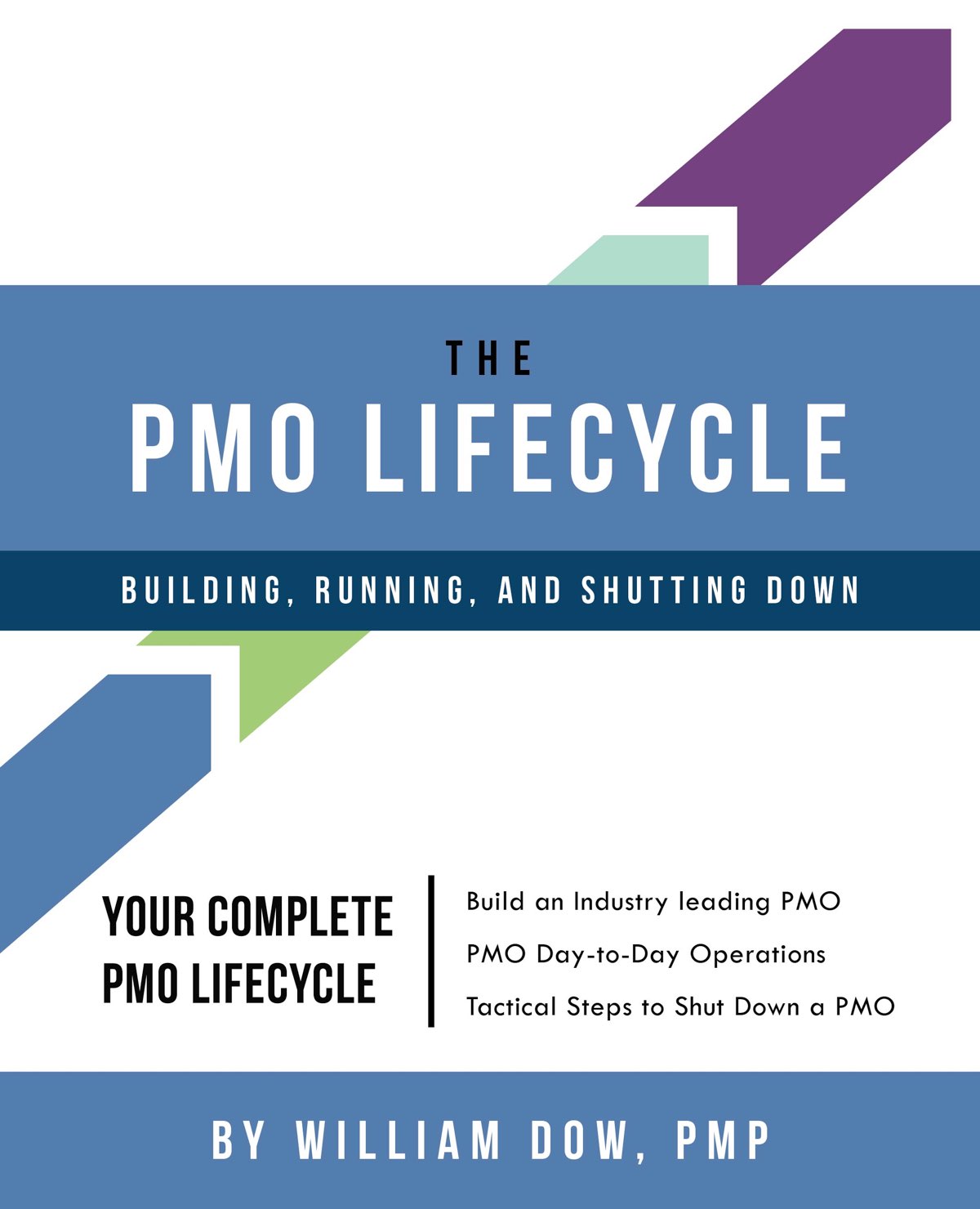
The PMO Lifecycle: Building, Running and Shutting Down
William D Dow, PMP
Contents
I.
II.
III.
IV.
V.
VI.
VII.
VIII.
Copyright @ 2017 William Dow, PMP
Dow Publishing LLC
1210 N 42nd Place
Renton, WA 98056
All rights reserved.
No part of this book may be reproduced, stored in a retrieval system, or transmitted by any means, electronic, mechanical, photocopying, recording, or otherwise, without permission from the author.
ISBN 978-0-9858695-4-0
Printed in the United States of America
All trademarks are the property of their respective owners.
PMI:
- Always provide an attribution statement when using PMI marks.
- Registered Marks. Registered marks are marks that are registered with the U.S. Patent and Trademark Office. If the PMI List of Marks indicates that the mark is registered, the attribution statement should include the word registered, as follows:
- PMI, PMP,PgMP,ACP, PfMP, PMI-PBA are registered of Project Management Institute, Inc.
- A Guide to the Project Management Body of Knowledge (PMBOK Guide) Sixth Edition, Project Management Institute, Inc., 2013. Copyright and all rights reserved. Material from this publication has been reproduced with the permission of PMI.
- PMBOK is a registered mark of Project Management Institute, Inc.
- The Standard for Program Management Fourth Edition Copyright and all rights reserved. Material from this publication has been reproduced with the permission of PMI.
 Created with Vellum
Created with Vellum
When I thought about dedicating this book, I wanted to focus on one person this time: my wife, Kathleen Dow. It has been a rough year with some medical issues for us, and so I want to take this time and say Kath, without you, I would not be who I am today. You are my rock, my support mechanism, my life. You are everything to me. I want to thank you for being you, and I could not have done it without you!
I also want to thank my mother and my brothers and sister and of course my son William Dow. Billy, I am so proud of you and you mean everything to me.
About the Author
William Dow, PMP, is a recognized expert in project management by the Project Management Institute (PMI) for developing and managing project management offices (PMOs.) His extensive experience with project management and PMOs has enabled him to co-author several comprehensive books (available from Amazon.com).
Bill has taught at the college level for more than 15 years in Washington State, as well as in British Columbia and Ontario, Canada. He has worked at Microsoft for more than 10 years. He has spoken at multiple PMI conferences, breakfasts, and events nationally. ProjectManagement.com(http://www.projectmanagement.com) and PMtimes (http://www.projecttimes.com) host numerous articles by Bill.
As a PMP and subject matter expert, Bill is available to author white papers, articles, and blog posts on specific topics relating to trends in project management. He is also poised to deliver training, however basic or complex, in project-management methods.
 Facebook
Facebook
 Twitter
Twitter
 Instagram
Instagram
Books by William Dow
The PMO Lifecycle: Building, Running, and Shutting Down (2017)
Project Management Communication Tools, co-authored with Bruce Taylor (2015)
The Tactical Guide for Building a PMO (2012)
Project Management Communications Bible, co-authored with Bruce Taylor (2008)
Courses by William Dow, PMP
The PMO Lifecycle: Building, Running and Shutting Down Online Course
Top Communication Tools Mini Course
How to Build, Run and Shutdown a PMO - Mini Course
Details found here: https://www.dowpublishingllc.com/
LinkedIn: https://www.linkedin.com/in/billdow
Website: http://www.dowpublishingllc.com and http://www.billdowpmp.com
Credits
Foreword: James Brown
Cover design: Elysia Chu
Editor: Kate Shoup
Chapter 2 PMO history: Bruce Taylor
Chapter 6, The Lean-Agile PMO: Jonathan Ward
Contributor, project-management business intelligence: Michael Hopmere
Contributor, Chapter 7, PMO Maturity Models (including The Balanced PMO): Al Callan, PMP
Chapter 10, Portfolio-Management Methodology: Yorai Linenberg
Contributor, Chapter 11, Program-Management Methodology: Mark Bestauros
Chapter 20, PMO change agents/models: Diana Lilla, M.A., PMP
The PMO Lifecycle Online Class
If you are still struggling and want some additional help, check out the online course. Click on the image below to go right to the course.
Foreword
I remember the first time I met Bill Dow. We were both attending a PMI Congress. He asked if he could share my table at breakfast. We quickly struck up a conversation about PMOsthe challenges many face when starting a PMO, and how to ensure delivery of the PMOs value and benefits once its up and running.
As the director of a PMO that won the 2009 PMO of the Year Award and someone who has built or managed PMOs for more than 20 years, I was attending PMI Congress as a speaker and as a guest of several vendors I had used over the years. As Bill described his current assignment, I was keenly interested in how his PMO handled project management compared to my current and previous experiences. It was very apparent during our brief discussion that many people in the profession run into similar issues surrounding PMOs.
Upon my return home from the PMI event, I immediately began reading Bills first book, The Project Management Communication Bible. It echoed the discussions we had. I could see that he truly understood that a major failure of many project managers is communication. I can no longer keep count of the times I have been asked to study an organization to determine the root cause of a PMO failure only to find it tied in some way to communication.
Over time, Bill and I kept in touch. He graciously provided me a copy of his next book, The Tactical Guide for Building a PMO, targeted at those attempting to build or improve a PMO. It was filled with common-sense information that is unfortunately not so common. To be more accurate, it identified a path and a series of processes that increase the PMOs chances of success. (Most folks do not want to take the time to perform these processesand then wonder why their PMO is not effective.) Bills views on the importance of focusing on the problem your PMO is trying to solve rather than process creation for the sake of having processes is very good advice.
When Bill asked me to write the foreword for his new book, PMO Lifecycle: Building, Running, and Shutting Down
Next page


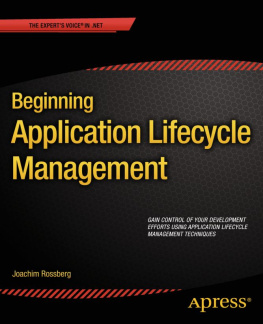

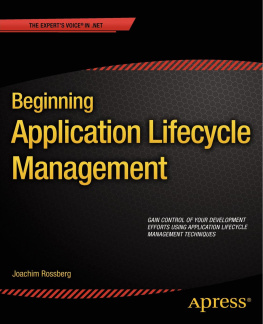
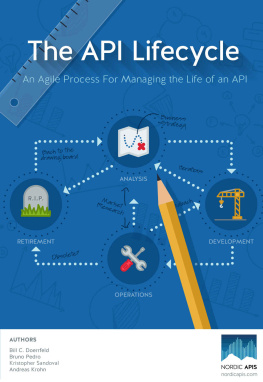

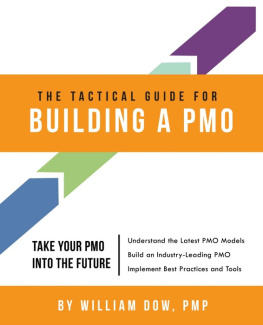


 Created with Vellum
Created with Vellum Facebook
Facebook Twitter
Twitter Instagram
Instagram